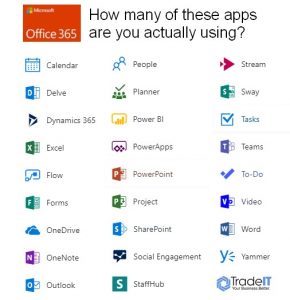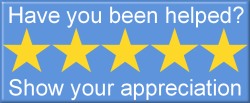TLDR – For Office 365 Business and Enterprise users, the World Cup might be the best training and education opportunity you’ll get this year.
Many of your employees will be taking a close interest in the tournament, so why not take advantage and get users engaged with Microsoft Teams and SharePoint – while using the World Cup as a cover for training!
Article…
 With the FIFA 2018 World Cup upon us, we can expect lots of blog posts and articles about the impact of the tournament on the economy and whether companies should allow staff to watch games or keep up with the event at work.
With the FIFA 2018 World Cup upon us, we can expect lots of blog posts and articles about the impact of the tournament on the economy and whether companies should allow staff to watch games or keep up with the event at work.
Big sporting events generally produce a dividend for the hospitality sector and some parts of retail, but the effect on the rest of the economy is debatable.
Are people less productive at the office because they are checking scores on their computers or mobiles instead of working on that project with a tight deadline? Does workplace productivity suffer the day after a famous victory as employees overindulge in celebrations?
Or does the feelgood factor of a national team doing well translate into a happier, more productive workforce with better teamwork?
There will be arguments on both sides, and the real answer is that no-one really knows (but Google and Facebook are probably trying to measure this kind of thing, so we might have an answer soon!)
The fact is, the World Cup is happening, and there will be many employees who are fans of the beautiful game and who will want to keep track of their favourite team’s progress.
Whatever you think of football as a sport or FIFA as an organisation, there is no doubt that the World Cup 2018 will be a marketing masterclass – the media and big brands love global sporting events and there will be no escape for you, your employees or your customers.
So we’ve been thinking of ways for organisations to take commercial advantage of the event, even if you aren’t working in the sports or hospitality sector.
Social media marketers will no doubt be peppering their posts with references to Messi, Ronaldo, Neymar and other icons of the game in the hope of driving a little extra traffic for their client’s websites – even if it is unlikely to result in conversions or sales.
However, we’re looking beyond the obvious and for Microsoft Office 365 users the World Cup could be a great education and training opportunity!
According to Microsoft’s 2018 Q3 earnings release, it has 135m monthly active commercial 365 users.
That’s a big number – and it’s growing fast – but the sad fact is that most Office 365 business users are failing to take full advantage of the tools and features that can really boost teamwork and productivity – especially SharePoint, Teams and OneNote.
Most Microsoft Office 365 users might as well still be using the tools of a decade ago – Outlook for email and the basic features of Word documents and Excel spreadsheets.
Many organisations simply ignore the SharePoint subscription that is included with Office 365 business editions and Microsoft Teams is invariably misunderstood.
OneNote – Microsoft’s greatest contribution to personal productivity – has been included in most Office versions for years and has been free since 2014, but we are still amazed at the number of users who are unaware of its existence.
An Office 365 business or enterprise subscription offers great value and has some fantastic tools and features to streamline workflows, facilitate collaboration and teamwork and generally make your business and your staff more productive – but only if you use them!
 For some businesses, using a small fraction of the features available in Office 365 has been ‘good enough’ and they have survived without working faster or more efficiently. This might have worked in the past when most of your competitors were in the same boat.
For some businesses, using a small fraction of the features available in Office 365 has been ‘good enough’ and they have survived without working faster or more efficiently. This might have worked in the past when most of your competitors were in the same boat.
Today, however, smart companies and agile start-ups are taking advantage of all the tools available to make themselves work faster and more efficiently.
When it comes to information workers, a well-trained employee with access to the right tools will outperform a ‘normal’ user many times over. Small teams with the right collaboration tools will deliver projects much faster than much bigger, better funded, traditional project teams who are still booking meeting rooms and sending round emails and memos.
In today’s fast-moving business world, standing still is a death sentence. It’s survival of the fittest and if your employees aren’t using the tools available to them to maximise productivity, you can bet some of your competitors are.
So why not take advantage of the World Cup to do some training, educate your users about SharePoint, Teams and OneNote – and reap the benefits of a more productive and collaborative workforce for years to come?
Perhaps the greatest advantage of doing a training and education exercise around the World Cup is that you won’t have to drag the users along.
For anyone who’s had the misfortune of sitting through General Data Protection Regulation (GDPR) training, an exercise based around the World Cup will be a breath of fresh air – whether you are a football fan or not!
 Most business owners and executives are aware of the importance of training, but we all know that a great deal of training is not very interesting, badly delivered and mostly forgotten shortly after the reluctant participants leave the training room.
Most business owners and executives are aware of the importance of training, but we all know that a great deal of training is not very interesting, badly delivered and mostly forgotten shortly after the reluctant participants leave the training room.
Your employees will be checking on games, chatting about the World Cup, keeping track of social media feeds and the like whether you like it or not. Your clients will probably be in the same boat – so things might slow down a bit and decisions will probably take a little longer than usual.
You could accept that business will be a bit slow for the next month or so, but if your business is using Microsoft Office 365, why not look to get some value for the business from the event?
Why not use Microsoft Teams, SharePoint, OneNote and other Office 365 tools to help users keep track of the tournament and their World Cup teams?
By gathering a variety of news and information resources together in Teams and SharePoint pages, you might even find that staff spend less time on the World Cup than they would if they were trying to find information through search and distracting surfing!
Here are some ideas for how it might work…
- Treat the World Cup as a project and set up a Team. Assign a project lead (this would be a great opportunity to give an inexperienced employee with potential some basic project management experience at no risk to the organisation).
- Create some SharePoint pages – perhaps one for each group or team. Depending on the size of your organisation, you might want to assign each of these to an individual. These could contain calendar events for fixtures, embedded YouTube videos or channels and documents. Embed Twitter feeds from FIFA and key players; maybe include news feeds from reliable sports sources like the BBC.
- Create additional channels as required – you might want to have a channel for England or their group.
- Encourage conversations through Teams to get users used to the collaboration experience and messaging rather than emailing.
- Set up a shared OneNote notebook to keep notes. This will introduce the functionality of OneNote as a personal productivity tool and showcase its value as a collaboration tool in a shared environment.
- If you have a subscription that includes Planner, try using it to manage project tasks and timelines.
- Have regular 10 minute project morning meetings through Teams to get users familiar with participating in online meetings using Teams and Skype. Better to get through technical issues and user problems with a project like this than try to deal with them when you are hooking up with an important client. Encourage smaller teams to set up ad hoc meetings as required to share and collaborate on content that has been assigned to them. Simulate an Agile/Scrum environment –
similar what you might use for a ‘real’ project.
- Use Fantasy teams to stimulate some friendly rivalry – this could be between individuals, departments or geographical regions. An exercise like this is a great way to find out if people really can work in teams. Much easier to deal with the fall-out from arguments over fantasy football team selections and transfers than to find out about personality clashes and problems when you are in the middle of a sprint to deliver on a ‘real’ project!
- Where possible, include elements that might be directly related to your business, e.g.
- If you are already working in overseas markets (or planning to do so), why not get some market research from countries in the World Cup that you are already trading with or planning to trade with?
- Get a team to research and author a white paper relating to one of the competing countries that you could use for lead generation or other marketing activity.
- Ask users to seek out business opportunities in the countries they are working on – you never know, you might get some gems. You also might identify some innovative thinkers that could be useful to nurture in the business.
- Consider bringing key clients and/or suppliers on board to simulate working in Teams with external users (if this is something that would be of practical value for the organisation – and if you already have appropriate relationships with those you bring on board).
- Involve your social media team – if nothing else, you’ll get a couple of amusing articles for the web page or blog, and they’ll get to use #worldcup and #ENG and other World Cup-related hashtags!
Of course, there will be a few caveats if you decide to adopt the World Cup as a training and education exercise, but this is a great opportunity to get people using tools that will have practical value and rapid ROI.
Anything that engages users and makes learning fun will have much better results than traditional, boring training courses.
While users might spend a bit of time on this that might otherwise have been occupied with revenue generating activity, any short-term productivity loss would probably have happened anyway. After all, how do you stop fans from keeping track of their team, chatting about the game or throwing a sickie to watch the big match (or recover from the aftermath)?
By channelling Wold Cup activity through Office 365, you can keep track of users’ activity and it will be easy enough to spot if anyone is spending too much time on the World Cup instead of generating revenue.
As well as developing your users’ skills with Microsoft Teams, SharePoint and other Office 365 apps, there are many other potential benefits:
- A chance to identify some strengths and weaknesses in your staff that you can use to advantage in the future.
- A ready-made training resource you can re-use in your ongoing training programmes.
- At the end of the exercise, you should have a good idea of what areas to target in future training exercises – especially if you get feedback from users who participate.
- Some ‘free’ content for your website or social media channels.
- Improved working relationships across geographies and departments.
- A better chance of winning the pub quiz when World Cup questions come up!
Some businesses might see the World Cup 2018 as a distraction and a cost, but why not see it as an opportunity to improve your productivity and teamworking?
Training doesn’t have to be boring and using the World Cup as a hook to get your employees using Microsoft Teams, Sharepoint and OneNote might be the smartest move you make this year.
The national side might not be expected to return from Russia with the trophy, but if your business takes the opportunity to educate your users, the big winners from this World Cup might be your Team!
If you haven’t made the move to Office 365 Business or Enterprise, or you want to know how to get the most from Teams, SharePoint and other tools you already have, why not get in touch to see if we can help?
Did you manage to take advantage of the World Cup to encourage teamwork and promote your training programmes? If you missed out this time, you don’t have to wait another four years – there are lots of other sporting events that you can use as a hook to engage your employees and improve productivity. How about the Ryder Cup (Golf), Davis Cup (Tennis), UEFA Nations League (Football), Women’s World Twenty20 (Cricket). If you are looking for something a bit further down the line, it’s less than twelve months until the 2019 Rugby World Cup in Japan – and that will come around sooner than you think!
If you are planning an upgrade to SharePoint 2019 or if you are migrating to the cloud and SharePoint online, why not plan for a global Teams roll out and tie in with a sporting event?
Have we helped? Show your appreciation!
Has this article helped or inspired you? Has your business profited from our ideas or suggestions? Have you saved money for your business or helped improve productivity? Click on the button to show your appreciation!
Sources and Useful Links
Can we help?
Microsoft Office 365 offers some great business tool that can give your business and your employees a real productivity boost.
If you aren’t taking full advantage of the features and services you are already paying for, you could be wasting money and putting your organisation at a competitive disadvantage.
If you want some practical business advice on getting the most from your Office 365 subscription, fill in the form below to arrange a no-obligation call to see if we can help.



Recent Comments